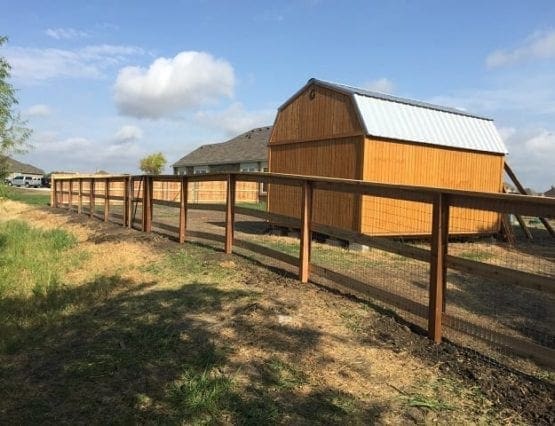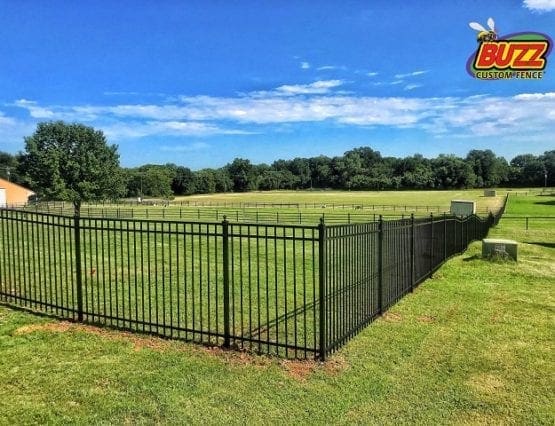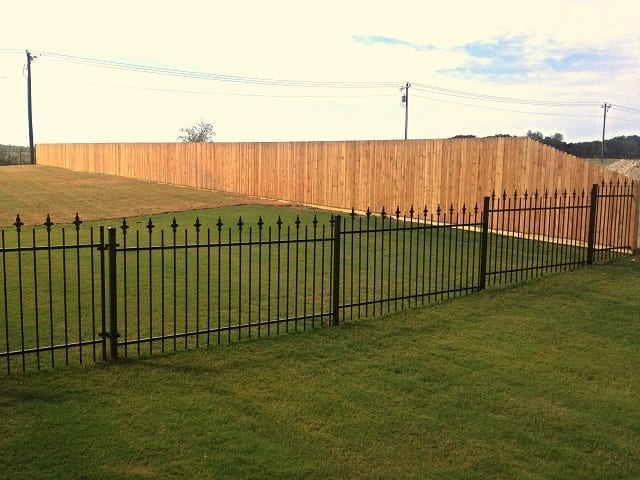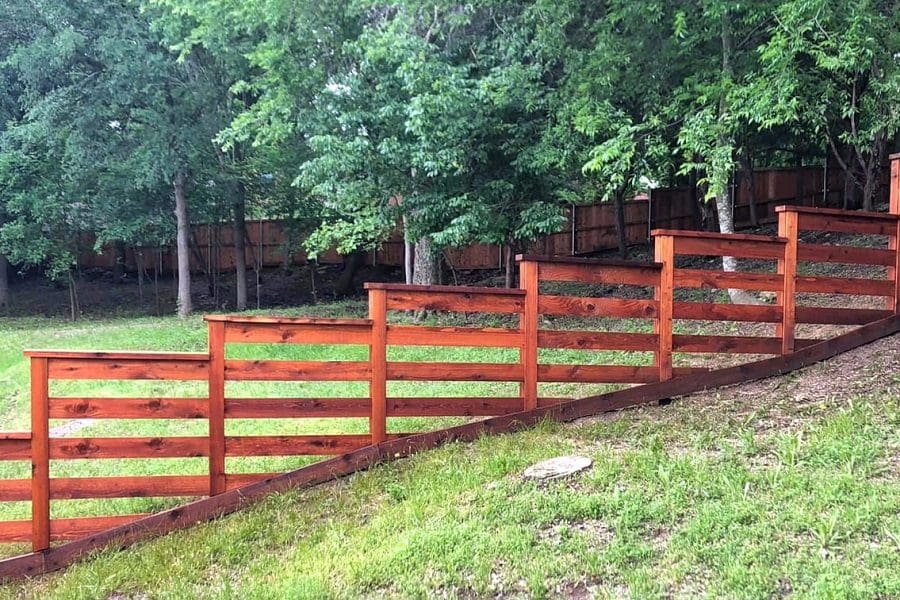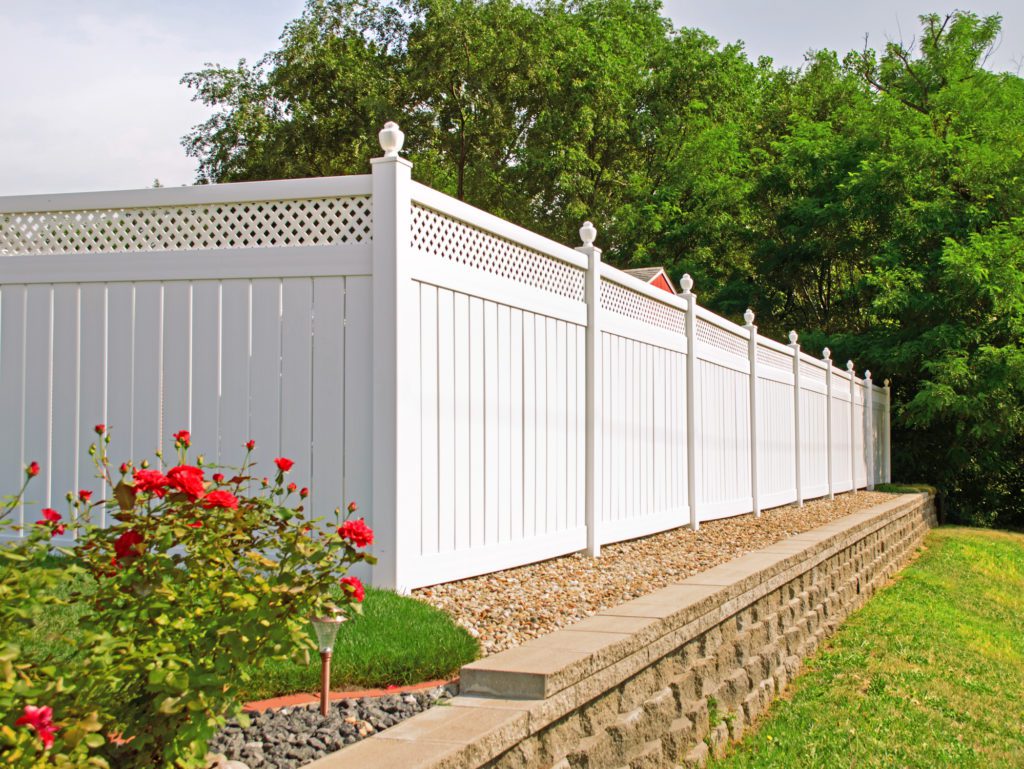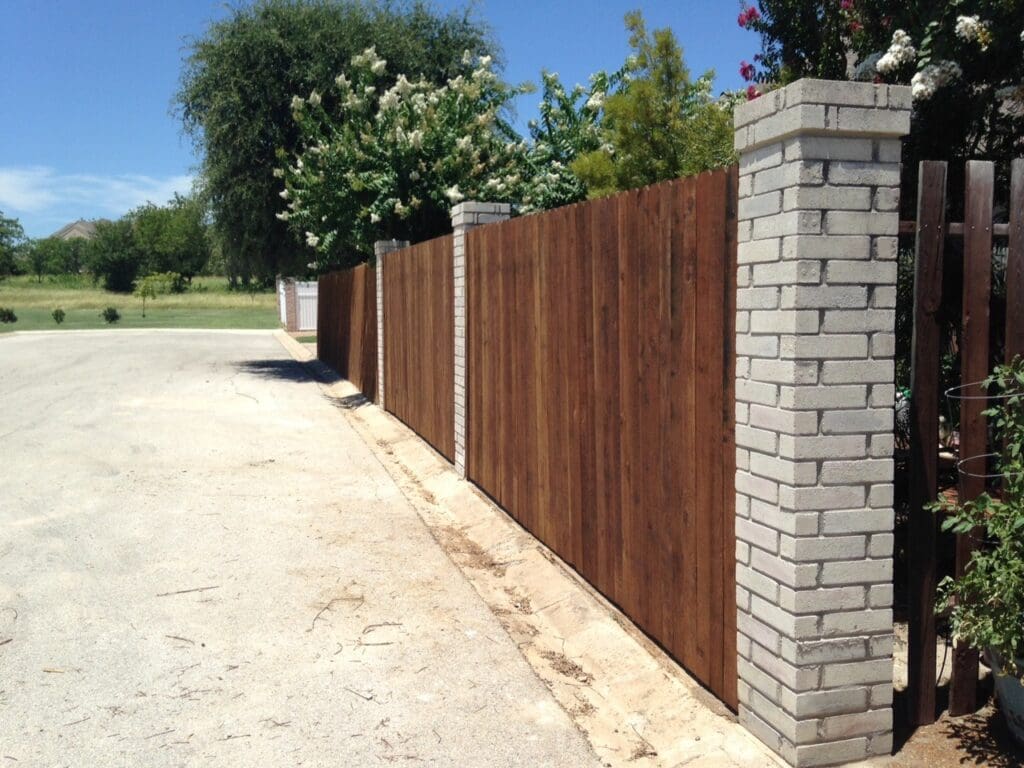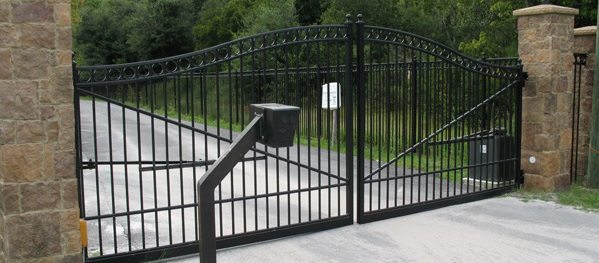
So you’ve decided you’d like a driveway gate to protect your pets and family, or to improve your property value. Automatic driveway gates can add five percent to your home’s value, or maybe you just want to enhance the curb appeal of your home. Whatever your reason, it’s important to make a few decisions before choosing a driveway gate. Most people don’t spend time thinking about the materials, how it should operate, how it should open and close and its overall design. Oftentimes Buzz is called in to install a new driveway gate when the property owner isn’t prepared to answer our questions.
Standard sizes
First, relax. It’s not as complicated as you might think. Unless your property is highly unusual with a very steep slope, you shouldn’t have to think too hard about driveway gate widths. American driveways generally measure between nine and twenty-four feet wide, with most towards the smaller end of that scale. Ten, twelve, fourteen and sixteen feet are all common sizes for driveway gates.
So let’s get started! Step one, get out your tape measure and measure your driveway. The gate needs to be a little wider than your driveway entrance. For example, if your driveway measures up to nine feet, six inches, the ten-foot gate will fit best. If your driveway measures between nine feet, seven inches and eleven feet, nine inches, opt for the twelve-footer. And so on up the scale. Here’s a handy reference table to help you choose the correct gate width.
| Your Driveway Width | Suggested Gate Size |
|---|---|
| < 9’ 6” | 10’ gate |
| 9’ 7” - 11’ 9” | 12’ gate |
| 11’ 10” - 13’ 9” | 14’ gate |
| 13’ 10” - 15’ 9” | 16’ gate |
Car Gates vs Truck, SUV and RV Gates
While the most popular gate sizes tend to be either ten or twelve feet, it’s important to consider the types of vehicles moving through your gate and whether your driveway entrance is straight or curved before you choose a final width. If the approach to your driveway is a straight shot you can use a smaller single gate; if the approach is at an angle or if it curves sharply, consider using a wider double gate. If the vehicle gate is for an apartment complex, condominium or a commercial application with two-way vehicle traffic, a double gate is also recommended.
This is Texas after-all, and many homeowners drive full-size SUV’s and pickup trucks hauling trailers and boats. Recreational Vehicles can have an even larger footprint and maybe unable to pull in straight with a small driveway gate. Also consider larger vehicles may require a wide area to turn while they pass through the gate opening. Keep in mind wider isn’t always better as well. The bigger the gate is, the more you can expect to pay in materials so be sure to choose a size that will fit into your budget.
Typically, the smaller the gate, the easier it will also be to maintain. If you are concerned about possible access for construction vehicles, moving trucks or utility vehicles, you can typically install removable sections of fence instead of paying for an extra large gate opening you may only need a few times a year. This allows you to save money by installing a smaller gate and considerably reducing any upkeep expenses for your driveway gate.
Double vs single gates
Gate width is usually simple enough to figure out, but sometimes people get stuck thinking about whether they should go with a single or double gate.
Here’s a simple way to think about it: Imagine a driveway that requires a twelve foot gate. You could either choose a one-piece gate that swings outward to open, or a gate with two six feet long leaves that part to allow your car to enter. In addition to your aesthetic preference, each setup has its pros and cons. A single gate requires only one automatic gate opener and requires half the hardware. This could save you money in the long run due to reduced mechanical upkeep costs. However, it also requires a full twelve feet of clearance to swing all the way open – as opposed to six feet for the double-leaf configuration – and calls for a heavier, more expensive post to bear its weight. If your driveway has a steep slope you’ll need to install a gate that swings away from the property and toward incoming traffic to ensure enough ground clearance (typically around 4”). Some people find the double gate option more elegant and a better fit for their needs, but it’s largely a matter of your personal preference and the amount of clearance you have at the entrance of your driveway.
If your driveway gate is for a commercial property with a narrow clearance and frequent use, you may want to consider a third option: the sliding gate. Sliding gates are less likely to cause vehicle damage, typically take up less space and are compatible with heavier gate materials such as wrought iron and steel for extra security. Double sliding gates also allow for the fastest entry and exit, however maintenance can sometimes be more costly given there are more moving parts to maintain.
Homeowners Association
Before measuring and pulling the trigger on a driveway gate, make sure you contact your homeowners association (HOA) if you have one. Some HOA’s have restrictions on the style, size, or width of gates to make sure everyone in the neighborhood adheres to the same aesthetic. If your gate is too big or does not open according to regulations, you could be required to replace the gate or pay HOA fines.
Here to help
Can’t find your tape measure or prefer professional assistance? Want somebody to help you choose the ideal driveway gate? At Buzz, we’re here for you. Contact us and we’ll solve all your driveway gate width issues.

